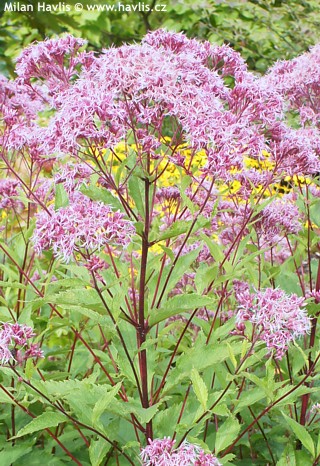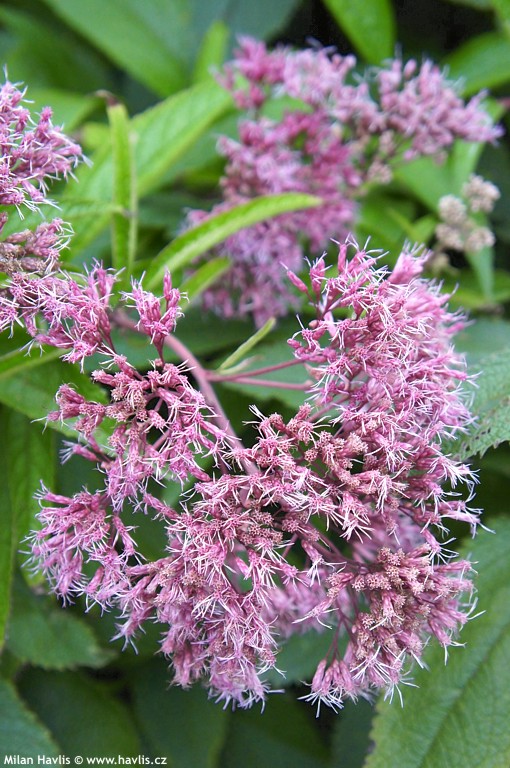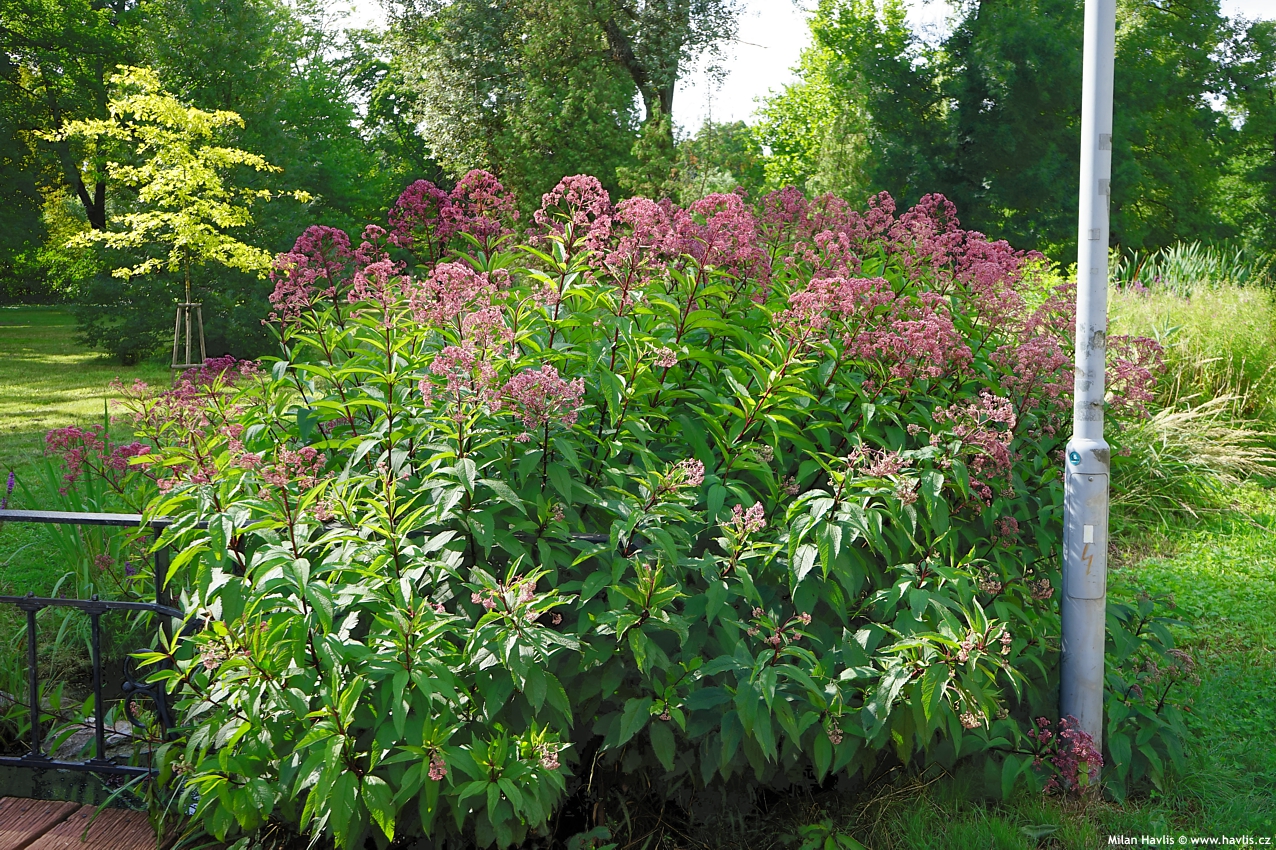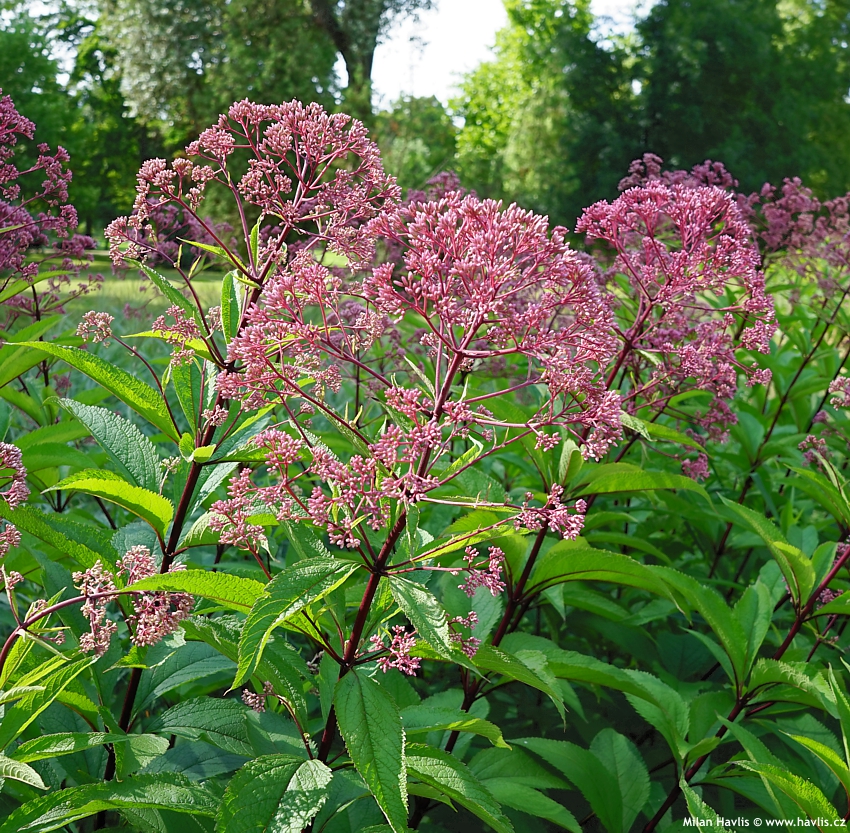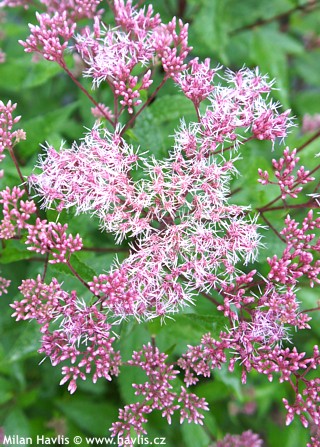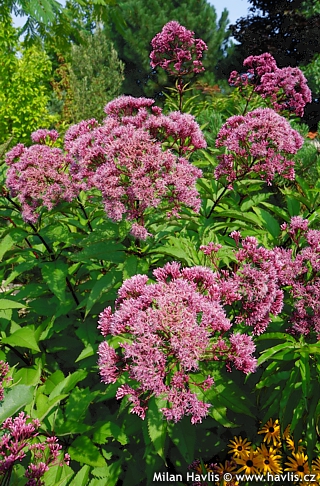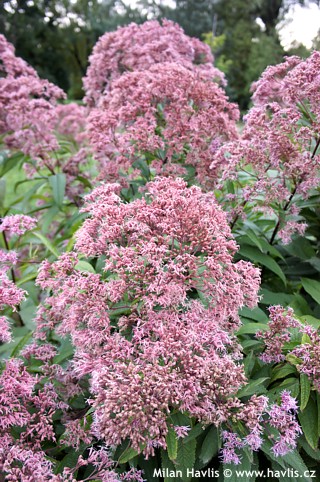Eutrochium maculatum (syn. Eupatorium m.) 'ATROPURPUREUM' Joe Pye weed
Eutrochium
Joe Pye was an American medicine man travelling from town to town with his medicines. This plant that is known for its curative effect on kidneys and urinary tract was named after him – Joe Pye Weed. I remember the first time I saw - it was in the Netherlands where it was planted in the centre of a roundabout border. I cannot recall what else grew there because it was so bold and attractive that it immediately gained my full attention. Showing a photo of this newly discovered species to my Dutch plant supplier it was clear that I came across a neglect-loving perennial called Joe Pye weed.
Atropurpureum is possibly the tallest and also the reddest variety of Joe Pye Weed. It forms dense tufts of 1.5-2m tall, deep wine red stems that are slender but tough, and do not bend after wind or rain. The flowers are composed in 15-20 cm large, corymb-like, almost flat panicles from midsummer until autumn. They open from purple red buds to dusky pink, hairy flowers that attract butterflies. Leaves are deciduous, broadly lanceolate, serrated at margins, mid to olive green and with some purple hues before the plant starts blooming.
This perennial, unless cultivated for its medicinal effect, is usually used as a bold feature of larger perennial beds where late flowering is required, and being quite large it makes a great companion to shrubs and trees in parks and public greens.
Joe Pye Weed likes moist sites and when established it takes some level of occasional waterlogging. It thrives in fertile, preferably alkaline soil in full sun or part shade. Its stems are strong enough to take weather caprices so you needn’t look for a sheltered spot for it. It is hardy to about -34°C (USDA zone 4).
Last update 28-12-2014


































